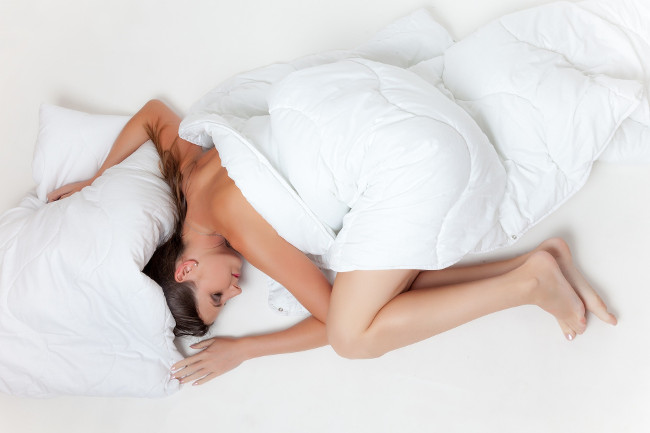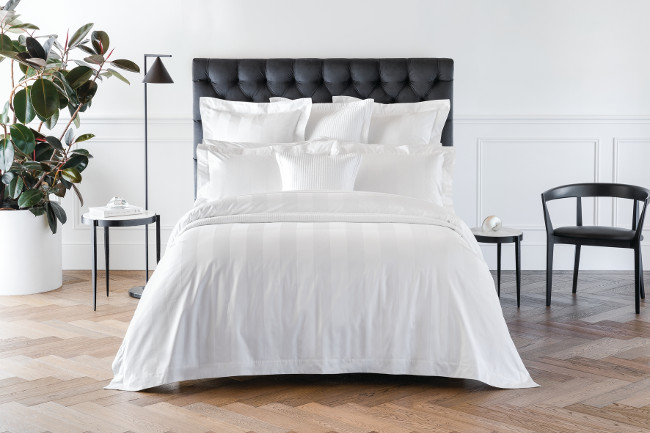In today’s world, sleep has become somewhat of a luxury, and the ambitious never switch off, quite literally, when, for many, work revolves around their mobile phone. But, considering sleep deprivation a badge of honour is not only counter-productive, it’s dangerous. The World Health Organisation has called sleep deficiency a public health epidemic, which two thirds of the adult population in developed nations suffer from. To combat it, 60 million Americans use sleeping pills a year. But how productive is this ‘quick fix’ to the sleeping problem?
Sleep science is a rapidly growing field; the next area of our lives to be ‘tracked and hacked’ for greater efficiency as part of the move towards the quantified self. This has not only been prompted by demand, but technology allowing more insight into the very importance of sleep. We have been aware for some time that lack of sleep increases the risk of obesity, cancer, diabetes, Alzheimer’s and mood and mental disorders.

Now we have the technology to tackle this at its roots. Electrical and magnetic brain stimulators allow researchers to understand the brain during sleep, enabling medical leaps such the development of a new early diagnostic litmus test for dementia. Such information has been used to push for top down change – the World Health Organisation has classed any form of night-time shift work as probably carcinogenic, and many city firms have installed sleep pods in the workplace (although this may be more to do with sleep deprivation costing the UK economy 2% of GDP a year!)
But although such change is recommended, most people don’t act on it. Now is a time when long term lifestyle changes are replacing short term fixes. Veganism is replacing the fad diet, and regular gym going replacing the diet pill. So, why does this health revolution not extend to sleep? And why are many people willing to invest time and money into quality gyms and organic food, yet settle for a substandard bed? It is especially ironic when you consider that sleep loss makes you more susceptible to weight gain, and not just because it takes away your work out motivation. Scientists have found that our brain interprets lack of sleep in the same was as lack of food, as the longer we stay awake the less of the hormone called leptin, which tells us when we are full, is produced – making us want to carb binge.

To some extent, there has been a move for change. We have heard time and time again to prepare our bodies for rest – to avoid late night eating or use of technology, and make our bedroom as dark and distraction free as possible – but where we actually spend those eight hours is often neglected.
With this in mind, luxury bedding company Sheridan developed what they claim to be ‘the world’s most luxurious bed,’ where a good night sleep is inevitable. In creating the Masterson, the head designer, Mark Travers, said that his “one uncompromising request to the mill was to throw as many sateen yarns to the surface of the stripe as possible. It is meant to shine.” It is a bed of uncompromising, unashamed, excess and five-star luxury, to make you feel like you are sleeping in a fresh hotel bed – especially because of its 1200 thread count. Yet in crisp white with subtle matte and sateen stripes it is timeless, focusing on “the quality of the cotton yarn and the invisible techniques of the weaver” in quiet luxury rather than garish glamour.

If the concept of spending a whole eight hours in your bed at home seems just impossible then consider a fold out bed in your office. Sometimes we have to concede that the ideal is simply not possible for our everyday lives and that we aren’t able to give up precious time at work, no matter how important a good night’s sleep is. A futon in your office may just be the compromise to make this all work for you, but you don’t need to make exceptions when it comes to comfort. The best futon mattress will be layered with sumptuous materials such as lambswool, can have pocket springs, be hypoallergenic and be ideal for everyday use, so there will be no compromise when it comes to those much needed hours of sleep.
It is, of course, unfortunate that sleep has become what we consider a luxury, when it is obviously so much more crucial than this. But, if you start your sleep revolution by making your bed somewhere you want to be, the daytime hours may become all that more productive. Whatever you tell yourself, power naps on the commute really don’t cut it. This is no longer a society for the quick fix.






















